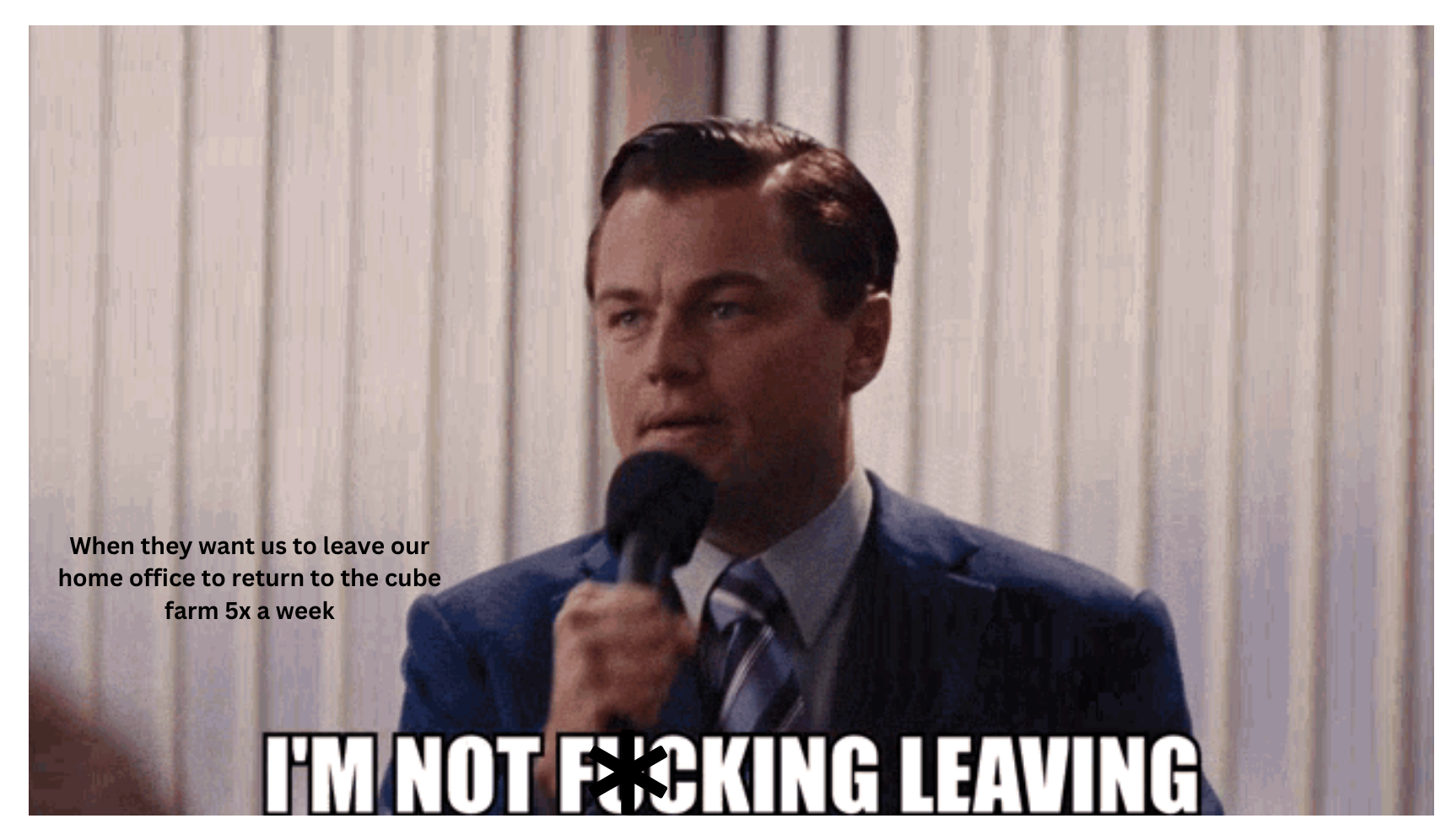Over the past five years, sales has been thrown into a blender. Buying behavior changed, deal cycles stretched, and suddenly, you need an executive panel, a procurement marathon, and a handwritten letter from the CEO to close a deal. 😭
Meanwhile, companies are still busy arguing about whether sales teams should be remote, hybrid, or in-office like that’s the secret ingredient to quota attainment.
Take ******* (I'm too scared to say the company name because I've received a cease and desist already once this week. But, just know its a Fortune 500 company that makes laptops, dude). In 2024, they were all in on AI, but also all in on return to office, forcing employees back five days a week with barely any notice.
Employees scrambled to find childcare, rearrange their lives, and make peace with spending their days under fluorescent lighting again. And for what? Just to be seen working? Most of their workforce was already hybrid. The culture wasn’t broken. The work was getting done. But leadership decided presence mattered more than productivity, which is corporate-speak for “we don’t trust any of you.” 👨💻👨💻👨💻
Meanwhile, morale across sales teams is in the gutter. The job market is chaotic. Layoffs are constant. Reps are working harder than ever, and it still feels like moving deals forward is an Olympic sport. Everyone is exhausted. And yet, leadership keeps trying to “fix” the culture debate by obsessing over where people are sitting instead of actually supporting them.
If your sales team isn’t hitting numbers, it’s not because their home office has some dogs in it. If your culture feels disconnected, it’s not because your reps don’t eat sad desk salads together in the break room.
Your sales culture doesn’t suck because of where people work! It sucks because you’re focusing on the wrong things.
Blaming remote work for a bad sales culture is like blaming your WiFi for not making cold calls. The real issue isn’t where people work, it’s how they’re being led, coached, and held accountable. The best sales teams have leadership that can make it work regardless of where reps are physically sitting. They’re making sure every 1:1, coaching session, and pipeline review actually does something useful. (Psst! They’re also advocating for the tools and technology needed to work from anywhere…)
The companies that are set up for long-term success will be the ones that know “culture” isn’t built by breathing the same recycled office air. It’s built through real conversations, clear expectations, and visibility that actually helps people improve.
And visibility? It’s not about micromanaging, it’s about clarity. It’s about taking the data you have and using it to make sure that everyone across your org actually knows where they stand without being harassed for updates. From there, coaching becomes something that helps them grow, not just another meeting they have to sit through (and busy work for management).
Sales leaders have been trying to “fix” 🛠️ culture with office perks for years. First, it was open floor plans (Congrats! We did it! Everyone can smell Roberta’s Hungry Man frozen riblet meal 🍖). Then, it was beer fridges and foosball tables (Weird? Distracted, drunk reps don’t close more deals? Huh.🤔). Now, the latest cure-all is forcing everyone back to the office 🏢. As if making people commute again is suddenly going to solve your churn problem. No, it makes your best reps find better jobs and you’re left with…Roberta’s Eu De Hungry Man wafting through the stale air of your suburban, business park prison.
A strong sales culture has nothing to do with where people work and everything to do with coaching, accountability, and recognition. If your team has clear expectations, actual mentorship, and coaching that isn’t just a pipeline interrogation, they’ll perform whether they’re in a cubicle or on a beach.
So before you start fantasizing about your team huddled around a conference room whiteboard like a stock photo, ask yourself this: Are you actually fixing the problem? Or are you just moving it to a new location?
 Back
Back



